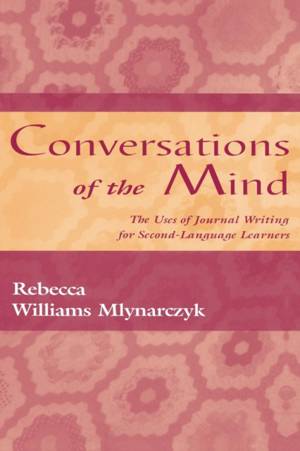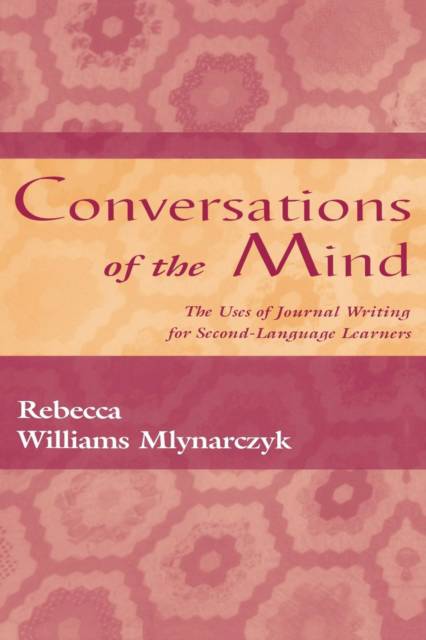
- Afhalen na 1 uur in een winkel met voorraad
- Gratis thuislevering in België vanaf € 30
- Ruim aanbod met 7 miljoen producten
- Afhalen na 1 uur in een winkel met voorraad
- Gratis thuislevering in België vanaf € 30
- Ruim aanbod met 7 miljoen producten
Conversations of the Mind
The Uses of Journal Writing for Second-Language Learners
Rebecca William MlynarczykOmschrijving
Asking students to write journals that reflect on their learning has become a widespread pedagogical practice in recent years. However, the scholarly literature does not address certain key questions about how journal writing aids learning:
* Is there something inherent in journal writing that encourages students to write reflectively?
* What psycholinguistic or cognitive factors help to explain the power of journal writing?
* Why do some students use journals to write prolifically and creatively while others limit their responses to summarizing the assigned course reading?
* Why do teachers find some journal entries so much more engaging than others?
* How do teachers' ways of responding to journals affect their students' development as writers and thinkers?
Specificaties
Betrokkenen
- Auteur(s):
- Uitgeverij:
Inhoud
- Aantal bladzijden:
- 232
- Taal:
- Engels
Eigenschappen
- Productcode (EAN):
- 9780805823189
- Verschijningsdatum:
- 1/12/1997
- Uitvoering:
- Paperback
- Formaat:
- Trade paperback (VS)
- Afmetingen:
- 157 mm x 234 mm
- Gewicht:
- 548 g

Alleen bij Standaard Boekhandel
Beoordelingen
We publiceren alleen reviews die voldoen aan de voorwaarden voor reviews. Bekijk onze voorwaarden voor reviews.











